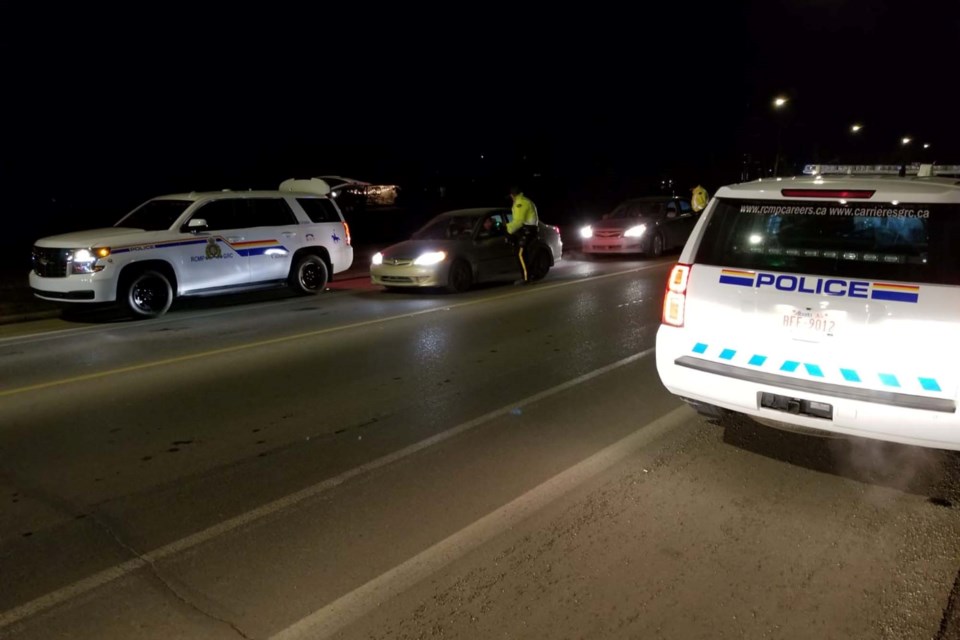INFO
The Alberta RCMP asks motorists to remember the following:
- Driving while under the influence of drugs or alcohol impairs your judgment and reaction time.
- Impaired driving is criminal and dangerous.
- Mandatory Alcohol Screening is used by Alberta RCMP to deter and detect impaired drivers. If you are pulled over or at a check stop, you can expect to provide a breath sample.
- Individuals with a Graduated Driver’s Licence must abide by the zero-tolerance law (Government of Alberta, 2021).
- Impaired driving is always preventable and can always be avoided. Call a taxi or ride-share service, use a designated driver, or stay the night.
- Call 911 if you witness or suspect impaired driving.
For more traffic safety information, follow us on Facebook @RCMPinAlberta and Twitter @RCMPAlberta.
Courtesy of RCMP Alberta.
Three years ago, if an RCMP officer was just starting shift and immediately pulled over an impaired driver, that officer would be off the road for the rest of the night dealing with the criminal offence, coupled with provincial suspensions, such as having the driver's licence suspended.
With the introduction of Bill 21 and its immediate roadside sanctions, the roads are safer and that same RCMP officer would be back on the street faster.
“We have officers who, in one shift, have pulled three impaired drivers off the road, finished all that paperwork, and gone home at the end of their shift, and they come back to work on the next morning, and they don't have a pile of paperwork waiting for them. It's all done already,” offered Sgt. Darrin Turnbull with Alberta RCMP Traffic Services.
Bill 21, otherwise known as the Provincial Administrative Penalties Act, changes how impaired drivers are penalized and how traffic ticket disputes are handled. This is done by taking them out of the courts to free up court and police resources to focus on the most serious offences.
It works by implementing new, immediate roadside penalties to first get the impaired drivers off the street. Many first-time offenders will also now be able to deal with those penalties through a new online traffic dispute system. It can all be dealt with on the side of the road, Turnbull noted.
Those immediate penalties escalate in terms of seriousness with measures such as having a vehicle seized for up to 30 days for certain offences and fines up to $2,000. Repeat offenders face new mandatory education programs, increased driver’s licence suspensions, and expanded mandatory ignition interlock as well.
“When they started this program in British Columbia many years ago, they saw some very, very positive numbers,” Turnbull continued. “Those numbers are in relation to the number of impaired driving crashes. Those are the ones that really matter because we're going to see a number of impaired drivers caught go up … because there's more officers having more time.”
More serious situations involving drivers with repeat offences and cases of impaired driving causing harm will receive the same roadside penalties and be prosecuted in court.
These changes effectively take Alberta toward having some of the toughest impaired-driving laws in the country.
When asked to clarify if this would make the RCMP’s work easier, he replied, “I'm not really worried about making the police job easier. I'm worried about making the road safer.”
Going back to the example of the officer just starting their shift, he said those roads would absolutely be safer. That officer would be back out and potentially pulling over other impaired drivers.
“Every impaired driver that you take off the road seriously — absolutely — is a crash prevented, a tragedy prevented, because a lot of times, it's just luck that they haven't crashed and killed somebody.”



